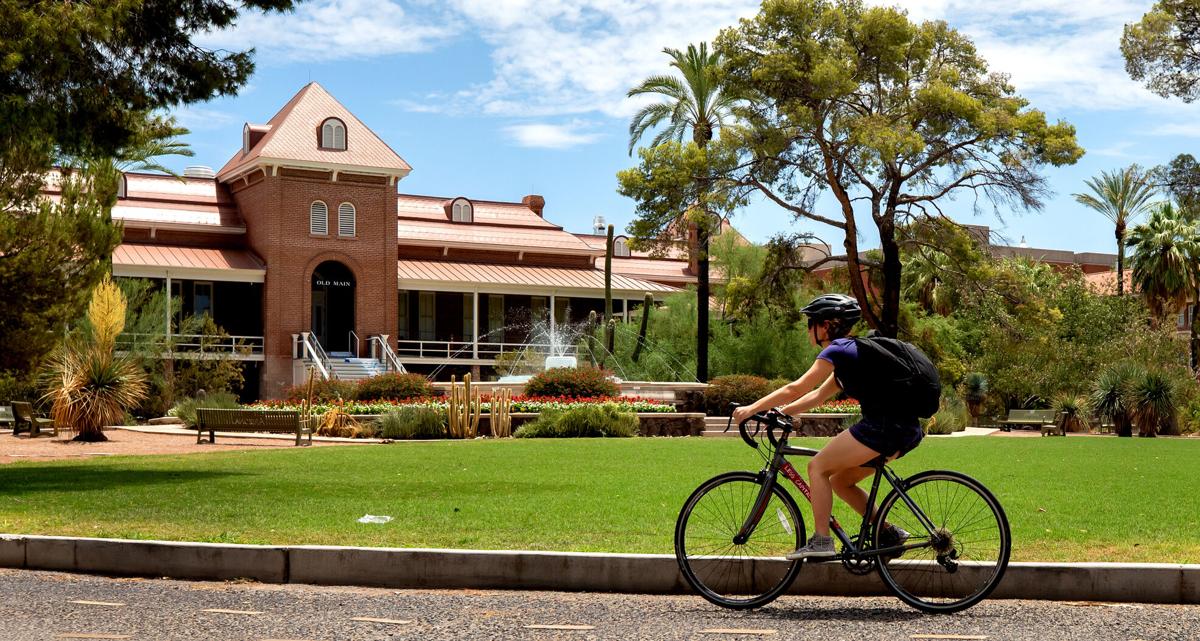Chapters of Students for Justice in Palestine at Arizona’s three universities are hitting back against an Arizona House committee’s remarks on antisemitism on school campuses.
The chapters of the pro-Palestine group at the University of Arizona, Arizona State and Northern Arizona condemned a Dec. 12 committee meeting about antisemitism, a joint statement last week says.
“Despite the fact that Students for Justice in Palestine (SJP) chapters were a focal point of discussion at this hearing, none of the SJP chapters in Arizona received an invitation to represent our student organizations,” the statement, which was posted to the groups’ Instagram accounts read. “This reflects a pattern of unequal treatment and censorship of pro-Palestinian voices seen at the university, state and national levels.”
The Ad Hoc Committee on Antisemitism in Education is a 12-person bipartisan group of legislators in the Arizona House.
The meeting featured speakers and comments on both K-12 education and university level schooling in the state. Many speakers criticized Students for Justice in Palestine.
Tammi Rossman-Benjamin, the co-founder and director of AMCHA Initiative, which documents antisemitism at higher education institutions, said that many of the antisemitic incidents her organization has seen this year can be attributed to Students for Justice in Palestine.
The group has “issued statements praising Hamas’ freedom fighters,” Rossman-Benjamin told the committee. Their rallies have been seen to justify “the murder of Jews,” she added.
The group defended itself against Rossman-Benjamin’s accusations in their statement, writing that “it speaks volumes to the low standards of this committee that no one, including the chairman, required actual evidence for egregious statements against SJP to be made, including the absurd and baseless accusation that SJP chapters in Arizona have provided material support to Hamas.”
The nationwide Students for Justice in Palestine organization, of which the university chapters are a part, described Hamas’ military feats as “a historic win for Palestinian resistance,” and called for “not just slogans and rallies, but armed confrontation with the oppressors,” in a statement published after Hamas’ Oct. 7 invasion of Israel.
Students for Justice in Palestine may receive public funding through universities’ student activities fees, said Nathan Schanzer, the senior vice president for research at the Foundation for Defense of Democracies. He added that the committee should push for the revoking of the chapters’ charters.
In their statement, the organization pushed back against that claim.
“This hearing was held to provide a pretext to introduce legislation to de-charter and withhold funding from our chapters on Arizona university campuses, violating our rights to expression as well as due process,” organization leaders wrote. “Therefore, we demand to be heard by the legislature before any legislation is put forward.”
The group added that their receive funding from student government budget requests and membership fees from students.
According to SJP, the “censorship of pro-Palestinian voices on Arizona campuses has become a recurrent theme over the course of the past two months.”
On Nov. 17, ASU canceled a scheduled appearance of U.S. Representative Rashida Tlaib, a pro-Palestine congresswoman, for “procedural issues,” despite, SJP wrote, “the organizers having collaborated with administration for months prior.”
The statement also accused the ASU Undergraduate Student Government of suppressing a bill calling for ASU to divest from Israel.
The UA has also seen its fair share of controversy over the conflict as well. On Oct. 12, University President Robert Robbins wrote a campus-wide email in which he condemned a planned protest by the group. SJP cancelled the event the next day, calling the president’s email “inflammatory.”
Additionally, two UA professors in the university’s college of education were suspended last month over remarks they made in class about the Israel-Palestine conflict that were recorded and leaked online. After a multi-day student sit in, the professors were eventually reinstated, though they were not allowed to return to teach that specific class.
“We refuse to be intimidated in the face of illegal censorship and repression by our universities and state institutions,” the Arizona chapters wrote.
There were “definitive calls” at the hearing to shut down SJP entirely, the statement said.
“If either the legislature or our universities take steps to materially hinder our organizations or deny us recognition, we will not hesitate to bring legal action against them,” the group threatened.
The statement concluded with a “demand” to be heard by the state House committee.
“We demand to be heard by the ad-hoc committee and be given equal time as our critics to provide further context about the objectives and activities of our independent student organizations,” the group wrote. “We reiterate our demands for our universities to treat all students with equal respect and reaffirm their commitments to protecting the academic freedoms of their most vulnerable students.”





